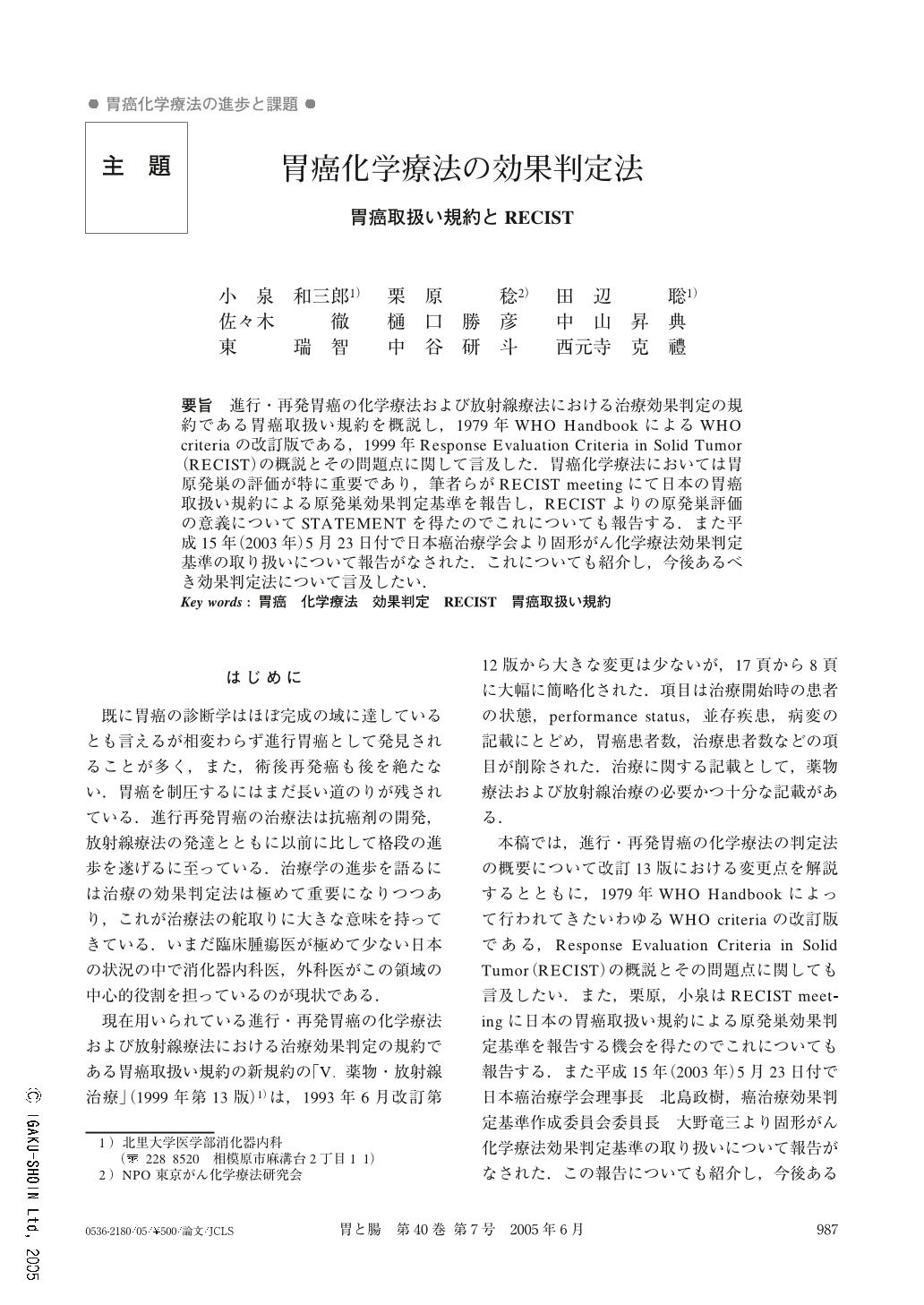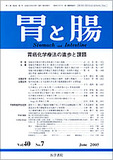Japanese
English
- 有料閲覧
- Abstract 文献概要
- 1ページ目 Look Inside
- 参考文献 Reference
- サイト内被引用 Cited by
要旨 進行・再発胃癌の化学療法および放射線療法における治療効果判定の規約である胃癌取扱い規約を概説し,1979年WHO HandbookによるWHO criteriaの改訂版である,1999年Response Evaluation Criteria in Solid Tumor(RECIST)の概説とその問題点に関して言及した.胃癌化学療法においては胃原発巣の評価が特に重要であり,筆者らがRECIST meetingにて日本の胃癌取扱い規約による原発巣効果判定基準を報告し,RECISTよりの原発巣評価の意義についてSTATEMENTを得たのでこれについても報告する.また平成15年(2003年)5月23日付で日本癌治療学会より固形がん化学療法効果判定基準の取り扱いについて報告がなされた.これについても紹介し,今後あるべき効果判定法について言及したい.
The efficacy of chemotherapy for gastric cancer has been evaluated by Japanese criteria for a long time in Japan. In 1999 RECIST criteria was reported by NCI, EORTC, and NCI Canada as a new version of WHO criteria. The author reported the differences between RECIST and Japanese criteria. Some problems were pointed out. The biggest problem was that primary gastric lesion was not evaluated as a target lesion in RECIST criteria. Primary gastric lesion should be evaluated by Japanese criteria because of the strong relation it has to survival and the increased patient enrolements even though they only have a primary lesion. RECIST will be the absolute criteria for evaluating the response of all solid tumors but the concomitant response evaluation of primary gastric lesions should be surrogate criteria in gastric cancer treatment.

Copyright © 2005, Igaku-Shoin Ltd. All rights reserved.


